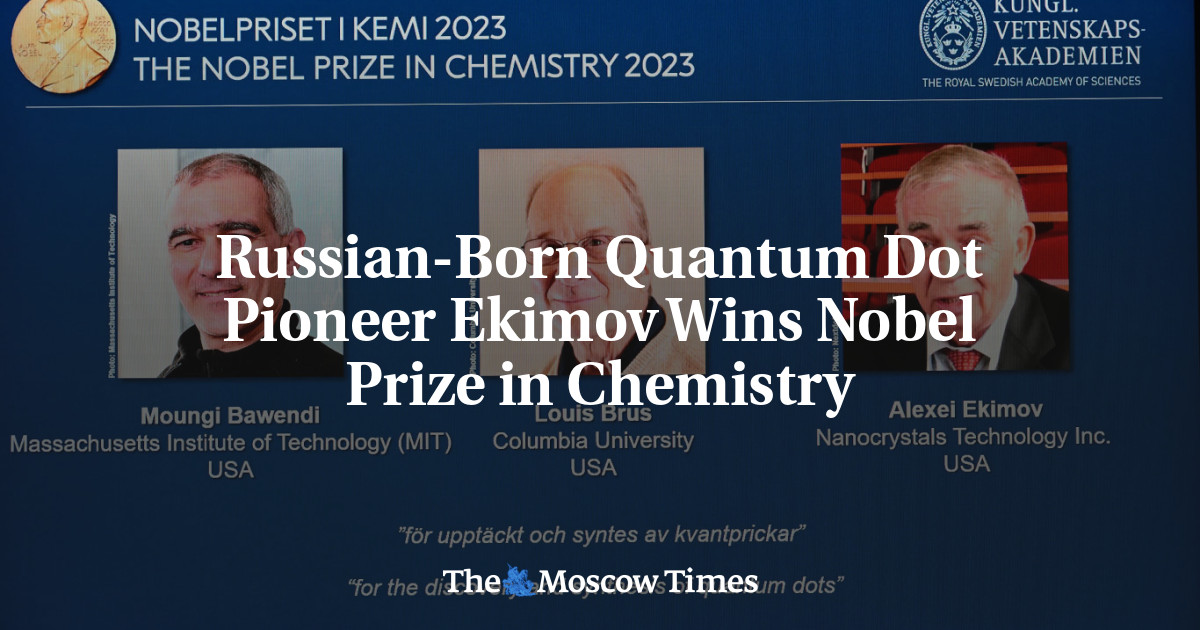
Russian-born physicist Alexei Ekimov on Wednesday won the Nobel Prize in Chemistry alongside French-born Moungi Bawendi and American scientist Louis Brus for their research on tiny particles known as quantum dots.
The trio succeeded in producing these tiny fluorescent semiconductors that “now spread their light from televisions and LED lamps, and can also guide surgeons when they remove tumor tissue, among many other things,” the jury said.
In 1981, Ekimov discovered quantum dots at St. Petersburg’s Vavilov State Optical Institute.
The Nobel Committee for Chemistry said Ekimov’s discovery helped Brus to later “prove size-dependent quantum effects in particles floating freely in a fluid.”
Bawendi then changed the chemical production of quantum dots into “almost perfect particles,” which allowed for their use in applications.
Alexei Ekimov, born in the U.S.S.R. in 1945, is a former chief scientist at the New York-based Nanocrystals Technology Inc.
The trio will share the $1 million award, receiving it from King Carl XVI Gustaf at a ceremony in Stockholm on Dec. 10, the anniversary of Swedish scientist Alfred Nobel’s death in 1895.
The chemistry distinction is the third Nobel Prize to be awarded this year, after the medicine prize and the physics prizes were announced earlier this week.
AFP contributed reporting.